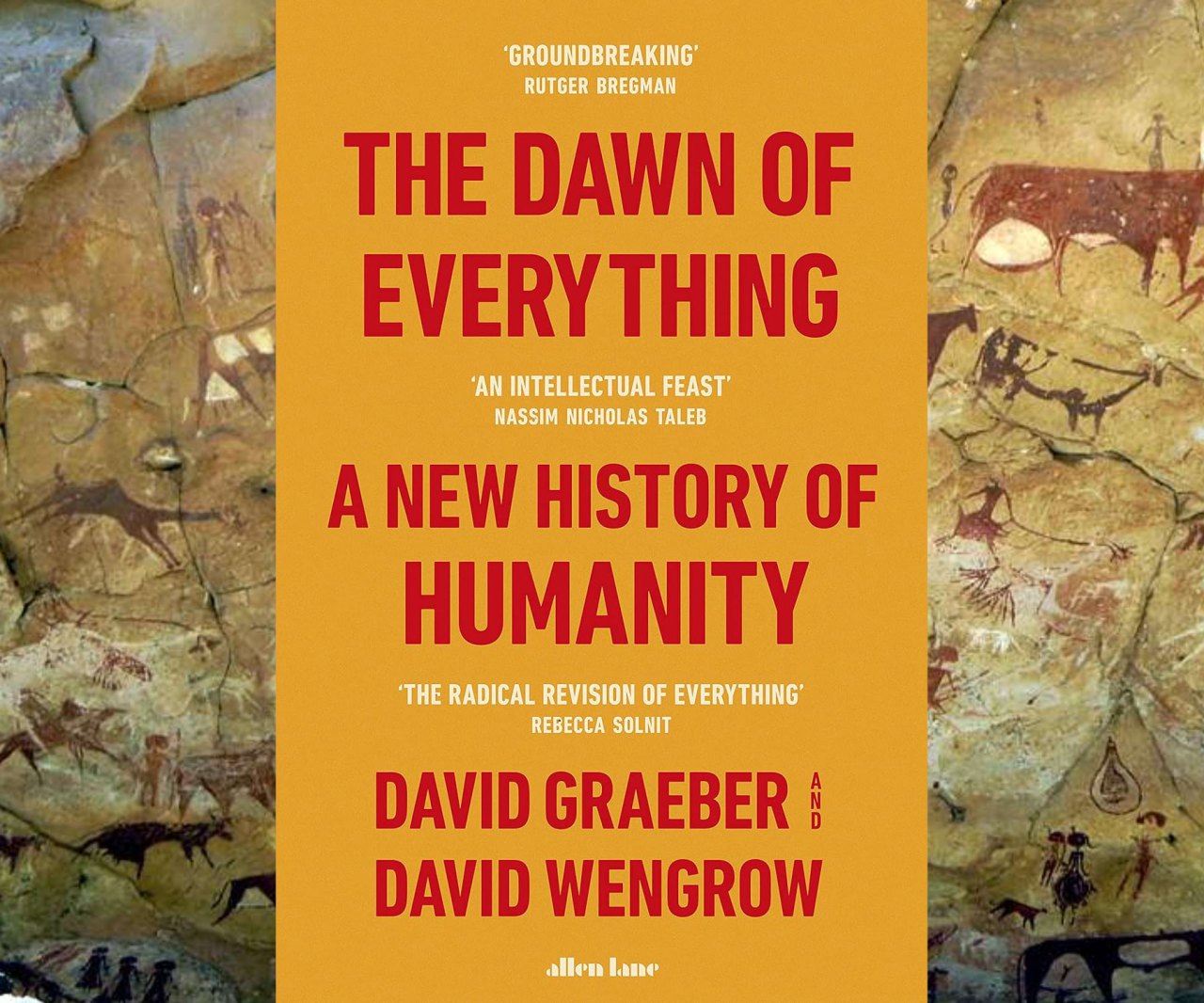The Dawn of Everything fundamentally transforms our understanding of the human past and offers a path toward imagining new forms of freedom, new ways of organizing society. This is a monumental book of formidable intellectual range, animated by curiosity, moral vision and faith in the power of direct action.
Possible discussion questions: Chapter 1
1. The two David’s title this chapter “Farewell to Humanity’s Childhood.” What might a more “mature” understanding of humanity look like? How might we consider human history in ways that avoid teleologies?
2. Why is it that people, especially since the Enlightenment, have struggled to imagine the possibility of reinventing themselves? What is it about modernity in particular that has made people feel simultaneously imaginatively empowered and constrained?
3. If all science relies on simplifications, how can one do history in a way that expands rather than reduces our sense of possibilities? What is lost or potentially gained by relying on intellectual simplifications?
4. To what extent are humans, even those who haven’t read Hobbes or Rousseau, victims of their intellectual tyranny?
Led and moderated by Steven Bachelor
